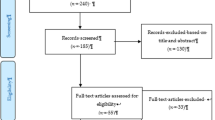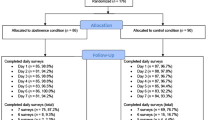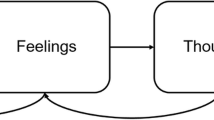Abstract
The self-medication hypothesis of addictive disorders maintains that individuals use substances to cope with dysphoric affect, and that painful emotional states are etiologically relevant to the development of a substance use disorder. While this hypothesis may be relevant for some, this paper proposes that self-medication understood in this fashion is an over-used concept. Furthermore, viewing substance use as being caused by some underlying emotional issue will affect how counselling is conducted and it is suggested that intervention may often be misguided. In this paper, other ways that substance use and mental suffering can become related that have nothing to do with emotional anguish being the causal agent for substance use will be elucidated. The implications that this has on counselling intervention will then be highlighted. Broadening of our understanding of self-medication and the many ways that substance use and psychological distress can become linked will help counselors to offer optimal care to this vulnerable population.
Similar content being viewed by others
References
Adinoff, B. (2004). Neurobiologic processes in drug reward and addiction. Harvard Review of Psychiatry, 12, 305–320. https://doi.org/10.1080/10673220490910844.
Dick, D. M., Prescott, C., & McGue, M. (2009). The genetics of substance use and substance use disorders. In Y.-K. Kim (Ed.), Handbook of behavior genetics (pp. 433–453). New York: Springer Science + Business Media. https://doi.org/10.1007/978-0-387-76727-7_29.
European Monitoring Centre for Drugs and Drug Addiction. (2013). Co-morbid substance use and mental disorders in Europe: A review of the data. In EMCDDA Papers. Luxembourg: Publications Office of the European Union http://www.emcdda.europa.eu/attachements.cfm/att_220660_EN_TDAU13002ENN.pdf.
Frances, R. J. (1997). The wrath of grapes versus the self-medication hypothesis. Harvard Review of Psychiatry, 4, 287–289. https://doi.org/10.3109/10673229709030556.
Gau, S. S. F., Chong, M. Y., Yang, P., Yen, C. F., Liang, K. Y., & Cheng, A. T. A. (2007). Psychiatric and psychosocial predictors of substance use disorders among adolescents. Longitudinal study. The British Journal of Psychiatry, 190, 42–48. https://doi.org/10.1192/bjp.bp.106.022871.
Goswami, S., Mattoo, S. K., Basu, D., & Singh, G. (2004). Substance-abusing schizophrenics: Do they self-medicate? American Journal on Addictions, 13, 139–150. https://doi.org/10.1080/10550490490435795.
Hall, D. H., & Queener, J. E. (2007). Self-medication hypothesis of substance use: Testing Khantzian’s updated theory. Journal of Psychoactive Drugs, 39, 151–158. https://doi.org/10.1080/02791072.2007.10399873.
Harrington, R., Fudge, H., Rutter, M., Pickles, A., & Hill, J. (1990). Adult outcomes of childhood and adolescent depression: I. Psychiatric status. Archives of General Psychiatry, 47, 465–473. https://doi.org/10.1001/archpsyc.1990.01810170065010.
Heath, A.C. (1995). Genetic influences on alcoholism risk. Alcohol Health and Research World 19, 166–171.
Henwood, B., & Padgett, D. K. (2007). Reevaluating the self-medication hypothesis among the dually diagnosed. The American Journal on Addictions, 16, 160–165. https://doi.org/10.1080/10550490701375368.
Kendler, K. S., Jacobson, K. C., Prescott, C. A., & Neale, M. C. (2003). Specificity of genetic and environmental risk factors for use and abuse/dependence of cannabis, cocaine, hallucinogens, sedatives, stimulants, and opiates in male twins. American Journal of Psychiatry, 160, 687–696. https://doi.org/10.1176/appi.ajp.160.4.687.
Kessler, R. C., Berglund, P., Demler, O., Jin, R., Merikangas, K. R., & Walters, E. E. (2005). Lifetime prevalence and age-of-onset distributions of DSM-IV disorders in the National Comorbidity Survey Replication. Archives of General Psychiatry, 62, 593–602. https://doi.org/10.1001/archpsyc.62.6.593.
Kessler, R. C., & Wang, P. S. (2008). The descriptive epidemiology of commonly occurring mental disorders in the United States. Annual Review of Public Health, 29, 115–129. https://doi.org/10.1146/annurev.publhealth.29.020907.090847.
Khantzian, E. J. (1985). The self-medication hypothesis of addictive disorders: Focus on heroin and cocaine dependence. American Journal of Psychiatry, 142, 1259–1264. https://doi.org/10.1176/ajp.142.11.1259.
Khantzian, E. J. (1997). The self-medication hypothesis of substance use disorders: A reconsideration and recent applications. Harvard Review of Psychiatry, 4, 287–289. https://doi.org/10.3109/10673229709030550.
Khantzian, E. J., Mack, J. E., Schatzberg, A. F., McKenna, G. J., Treece, C. J., Khantzian, N. J., Kates, W. W., Halliday, K. S., Golden, S. J., & McAuliffe, W. E. (1999). Treating addiction as a human process. Lanham: Jason Aronson.
Koob, G. F., & Le Moal, M. (2001). Drug addiction, dysregulation of reward, and allostasis. Neuropsychopharmacology, 24, 97–129. https://doi.org/10.1016/S0893-133X(00)00195-0.
Levy, M. S. (2002). Engaging dual diagnosis clients into treatment: The TEEACH program. Journal of Psychoactive Drugs, 34, 409–413. https://doi.org/10.1080/02791072.2002.10399982.
Levy, M. S. (2008). Listening to our clients: The prevention of relapse. Journal of Psychoactive Drugs, 40, 167–172. https://doi.org/10.1080/02791072.2008.10400627.
Lo, C. C., Cheng, T. C., & de la Rosa, I. A. (2015). Depression and substance use: A temporal-ordered model. Substance Use and Misuse, 50, 1274–1283. https://doi.org/10.3109/10826084.2014.998236.
Merikangas, K. R., Stolar, M., Stevens, D. E., Goulet, J., Preisig, M. A., Fenton, B., Zhang, H., O'Malley, S. S., & Rounsaville, B. J. (1998). Familial transmission use of substance use disorders. Archives of General Psychiatry, 55, 973–979. https://doi.org/10.1001/archpsyc.55.11.973.
Meyer, R. E. (1986). How to understand the relationship between psychopathology and addictive disorders: Another example of the chicken and the egg. In R.E. Meyer (Ed.), Psychopathology and addictive disorders (pp. 3–16). New York: Guilford Press.
National Institute on Drug Abuse (2016). The science of substance abuse and addiction: The basics. Media Guide. Retrieved from https://drugabuse.gov/publications/media-guide.
Rao, U., Ryan, N. D., Birmaher, B., Dahl, R. E., Williamson, D. E., Kaufman, R. R., & Nelson, B. (1995). Unipolar depression in adolescents: Clinical outcome in adulthood. Journal of the American Academy of Child and Adolescent Psychiatry, 34, 566–587. https://doi.org/10.1097/00004583-199505000-00009.
Rhee, S. H., Hewitt, J. K., Young, S. E., Corley, R. P., Crowley, T. J., & Stallings, M. C. (2003). Genetic and environmental influences on substance initiation, use, and problem use in adolescents. Archives of General Psychiatry, 60, 1256–1264. https://doi.org/10.1001/archpsyc.60.12.1256.
Schuckit, M. A. (1994). Low level of response to alcohol as a predictor of future alcoholism. The American Journal of Psychiatry, 151, 184–189. https://doi.org/10.1176/ajp.151.2.184.
Schuckit, M. A., & Smith, T. L. (1996). An 8-year follow-up of 450 sons of alcoholic and control subjects. Archives of General Psychiatry, 53, 202–210. https://doi.org/10.1001/archpsyc.1996.01830030020005.
Schuckit, M. A., Tsuang, J. W., Anthenelli, R. M., Tipp, J. E., & Nurnberger, J. I. (1996). Alcohol challenges in young men from alcoholic pedigrees and control families: A report from the COGA project. Journal of Studies on Alcohol, 57, 368–377. https://doi.org/10.15288/jsa.1996.57.368.
Teesson, M., Slade, T., & Mills, K. (2009). Comorbidity in Australia: Finding of the 2007 national survey of mental health and wellbeing. Australian and New Zealand Journal of Psychiatry, 43, 606–614. https://doi.org/10.1080/00048670902970908.
Vaillant, G. E. (1983). The natural history of alcoholism. Cambridge: Harvard University Press.
Weiss, R. D., Griffin, M. L., & Mirin, S. M. (1992). Drug abuse as self-medication for depression: An empirical study. American Journal of Drug and Alcohol Abuse, 18, 121–129. https://doi.org/10.3109/00952999208992825.
Wilens, T. E., Martelon, M., Joshi, G., Bateman, C., Fried, R., Petty, C., & Biederman, J. (2011). Does ADHD predict substance-use disorders? A 10-year follow-up study of young adults with ADHD. Journal of the American Academy of Child & Adolescent Psychiatry, 50, 543–553. https://doi.org/10.1016/j.jaac.2011.01.021.
Wilkinson, S. L., Halpern, C. T., & Herring, A. H. (2016). Directions of the relationship between substance use and depressive symptoms from adolescence to young adulthood. Addictive Behaviors, 60, 64–70. https://doi.org/10.1016/j.addbeh.2016.03.036.
Author information
Authors and Affiliations
Corresponding author
Rights and permissions
About this article
Cite this article
Levy, M. The Many Faces (and Potential Dangers) of Self-Medication as an Explanatory Concept for Substance Use. Int J Adv Counselling 41, 15–24 (2019). https://doi.org/10.1007/s10447-018-9341-3
Published:
Issue Date:
DOI: https://doi.org/10.1007/s10447-018-9341-3




